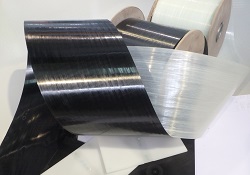Better scheduling for supply chains
From refining crude oil to transforming plastic, the chemical industry boasts 23 000 businesses in the EU, over 95 % of which are small and medium-sized enterprises (SMEs). Ensuring the sector's robustness, however, requires efficient manufacturing supply chains, seamless transport and better planning of operation to achieve outputs in a cost-effective manner (optimised flow scheduling). The EU-funded project CAP-SCHED rose to the challenge. Keeping in mind that inefficient flow scheduling could lead to losses in the millions, the project sought to drastically reduce human operators' multiple trial-and-error simulations in order to optimise the supply chain. It employed artificial intelligence techniques combined with numerical problem-solving methods to rapidly assist human operators in difficult or complex operating circumstances. At the same time, the project team consulted with industry to conceive two prototype scheduling solutions. It went beyond the state of the art in the process industry to overcome scheduling challenges such as dealing with multi-product reactors or handling combined divergent, convergent and cyclic flows. In this context, the system has been designed to manage large scheduling problems that cannot be handled by a single technological approach. It divides a problem into smaller parts and combines different technological approaches such as mathematical programming, simulation or metaheuristics to achieve its aims. The first prototype is intended for continuous and semi-continuous multi-stage production processes such as crude oil refining and chemical transformation processes, including plastics and synthetic rubber production. The second developed is designed for multi-product, multi-level and/or multi-resource batch processes for industries such as agro-food, biotechnology, steel, textile, glass, paper and biofuel. With the improved scheduling offered by these prototypes, businesses become more agile in coping with the supply chain, enhancing the links between planning, scheduling, operations, logistics, purchasing and sales. CAP-SCHED promises to address lost market opportunities, difficulties in reacting to unforeseen events, disruptions, underutilisation of equipment, material losses and energy losses. This will be a major step forward for European industry.







